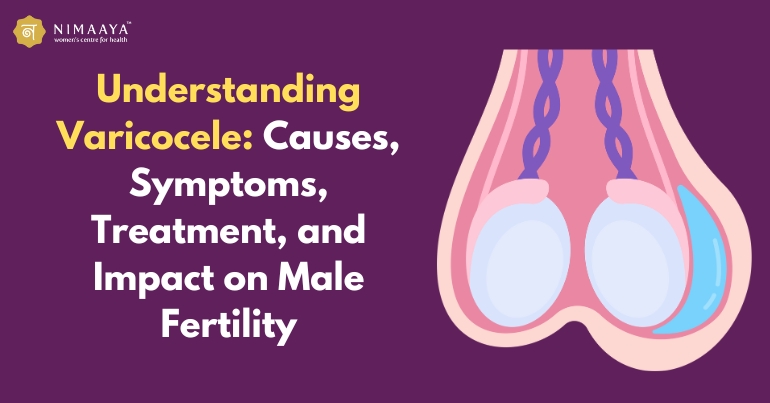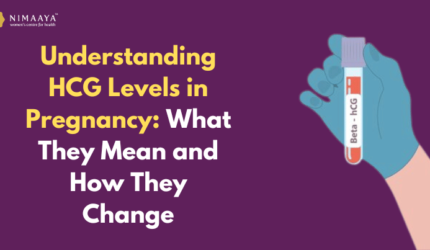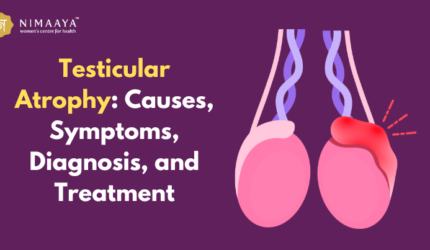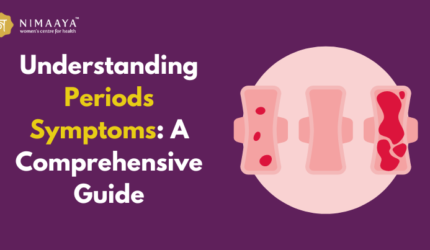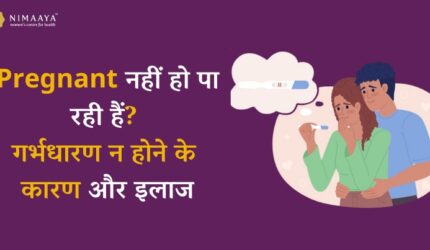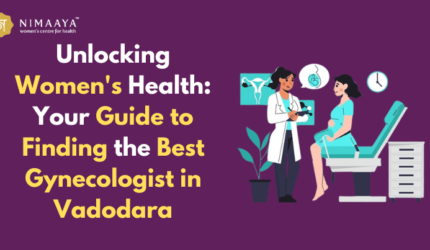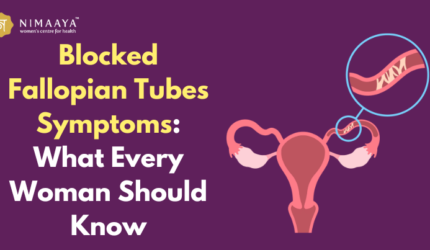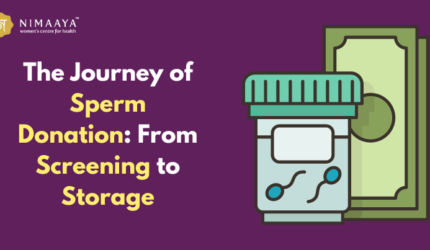Varicocele is a very common condition which occurs due to the dilatation of the scrotal veins in men. It is knew to cause male infertility and discomfort in the scrotum in most cases. The detailed review of varicocele is as follows:
Anatomy and Pathophysiology
When the pampiniform plexus becomes dilate, it is referre to as a varicocele. These special veins are responsible for draining blood from the testes and returning the blood to the heart. A varicocele arises with occlusion of the venous return resulting in stasis and subsequent varicose dilation of the veins. This stasis is cause by valve incompetence in the veins, as is seen in varicose veins in the legs. Such conditions most often arise during adolescence and are usually found to the left due to anatomical predisposition, for example, the direction in which the left testicular vein drains into the left renal vein.
Causes and Risk Factors
While the definitive mechanism behind varicocele formation is not know, several factors are postulate regarding how they happen:
Improper Valve Use:
Valves that are found in the veins of the testicles may become incompetent allowing the blood to stagnate and the veins to become dilated.
Anatomical Variations:
The left testicular vein drains into the left renal vein at an angle. Many believe this increases the chances of blood going back into the left testicle.
External Compression:
The left renal vein can also be compressed in a nutcracker position where it is position between the aorta and the superior mesenteric artery resulting in a varicocele.
Additional risk factors also include puberty where there is blood flow into the testes which may cause the veins to enlarge.
Symptoms and Diagnosis
Most men with varicoceles do not have any symptoms. When varicocele symptoms are present, they can include the following:
- Scrotal Pain: A sharp, aching, or throbbing pain that may be aggravat by physical exertion or prolonged standing, and relieved by lying down.
- Scrotal Swelling: Congestive changes due to dilated veins may be appreciat, particularly in the standing position.
- Infertility: One of the frequent causes of infertility in males is the presence of varicocele. It is the increased temperature in the scrotal area that comes as a result of impaired blood circulation that is believe affect sperm production and consequently their count.
The diagnosis of varicocele is most frequently nonsurgical. During the physical examination, a health practitioner usually performs the so-called “Valsalva manoeuvre” to check for the presence of a varicocele. Ultrasound can be perform which provides information on how large the varicocele is and how the blood flow is within the veins in the scrotum.
Effects on Male Fertility
The presence of varicoceles poses problems for men which leads to negative implications on male fertility. It interferes with sperm production, motility and morphology. The other factors that varicocele infertility emanates from include:
Scrotal Temperature Elevation: Sufficient blood flow is need to maintain the scrotal temperature that helps enhance the production of sperm.
Oxidative Stress: Varicocele presence may enhance the levels of reactive oxygen species (ROS) within the testis and lead to compromised sperm DNA.
Testosterone Deficiency: A lower testosterone level associated with varicoceles can affect sperm production and overall reproductive capacity.
Research has indicated that the management of varicocele can result in increased improvement in semen quality and in some cases increased fertility.
Read More: Male Infertility: Causes, Diagnosis, and Treatment Options
Classification and Grading
There are three further grades of varicoceles, which vary according to size and prominence;
Grade 1: This is a small varicocele palpable only on exertion, in this case, the Valsalva manoeuvre.
Grade 2: This is a medium varicocele, which can be felt without the utilization of a Valsalva manoeuvre.
Grade 3: This is a gross varicocele which can be seen on the scrotal skin.
Subclinical varicoceles can only be seen in imaging studies and are neither felt nor seen.
Treatment Options
Generally, treatment is advice for men who are dealing with symptomatic varicoceles or have infertility issues. Treatment options include:
Conservative Management
In men with mild symptoms, the following measures may be of help:
- Support Garments: This can help manage scrotal pain by minimizing the pressure exerted on the veins.
- Limiting Time Spent Standing: This helps reduce internal pressure discomfort since standing is associate with increased venous pressure in the scrotum.
- Cold Therapy: Helps alleviate discomfort and reduces the temperature of the scrotum.
Surgical Options
Varicocelectomy
Veins suffering from varicocele are often surgically take out to treat the condition in a procedure known as varicocelectomy. Different techniques can be employe while performing a varicocelectomy as follows:
- Open Surgery (Inguinal or Subinguinal Approach): This is an operation that is done in a hospital and under general or local anaesthesia. The surgeon utilizes the groin to gain access to the inside of the body and operate on the varicocele.
- Laparoscopic Surgery: Laparoscopic surgery is a less invasive surgical procedure than conventional surgery. This is because the procedure is perform through less than four small incisions on the abdomen where a camera and surgical instruments are insert through the small incisions.
- Microsurgical Varicocelectomy: In this technique, the surgeon uses a microscope for intraoperatively locating and ligating the diseased veins. This method is characterizes by low rates of complications and recurrence.
- Percutaneous Embolization: A catheter is inserted into a vein in the groin (or neck) and advanced to the testicular vein by an interventional radiologist. The varicocele is then occlude with coils or a sclerosing agent to prevent blood flow in the varicocele, effectively managing the varicocele. Embolization is less invasive compare to surgery and has a faster recovery period than surgery.
Outcomes and Prognosis
There are different ways to treat varicocele and their effectiveness differs significantly. varicocele surgery technology, especially microsurgical varicocelectomy, is proven to be efficacious and safe as there are very few complications associated with the procedure. Many men will notice an improvement in the quality of their semen, and testosterone levels and a reduction in scrotum pain after treatment. Unfortunately, however, it is possible to observe recurrences in up to 10-15% of the patients.
Impact on Fertility
Moreover, after treatment, semen parameters tend to improve, especially in those patients who had larger varicoceles or abnormal semen analyses before the surgery. In certain situations, particularly where there are difficulties in achieving a pregnancy after varicocele treatment, In vitro fertilization (IVF) and other reproductive technology (ART) procedures may be required.
Complications
Varicocele treatment, while largely uncomplicated, can pose certain risk factors:
- The Presence of Hydrocele: Swelling occurs due to extra fluid around the testes, which may require further intervention.
- Recurrences: Existing varicose veins may persist or grow back after correction.
- Infection and bleeding: Risks usually associated with surgery but rarely occur with microsurgery.
- Testicular Atrophy: Although this is unusual, this condition may come about following an injury to the arteries supplying blood to the testes.
Prevention and Lifestyle Modifications
There are no effective means to prevent the occurrence of varicoceles yet. Nevertheless, certain lifestyle modifications can help ameliorate symptoms among individuals suffering from mild varicoceles:
- Restricting Excessive Lifting and Standing: Lessens the questing pressure inside the scrotum.
- Using Supportive Gears: Protects the user from pressure and discomfort.
- Controlling Obesity and Engaging in Physical Exercise: Aids in promoting normal venous return and also in preventing the development of venous complications.
Psychological and Social Impact
Having a varicocele is not easy, especially in men who may have problems with infertility. Men living with such a condition worry about infertility, stress, anxiety, frustration – all that may affect their daily functioning. Such counselling can be offere in a support service or for providing two counselling sessions.
Future Research Directions
To understand the varicocele better, research works continue. Toward that end, specific interests are focus on male infertility. The research is regarding, genetic studies, molecular biological research for diagnosis, and the less painful and more effective treatment currently being develop. Also, modern imaging devices allow diagnosis and assessment of varicocele with greater accuracy and thus an approach to individual therapy.
Conclusion
Varicocele is a prevalent ailment affecting the reproductive health of males, especially their ability to reproduce. Diagnosis and treatment have improved significantly and provided beneficial options to alleviate symptoms and enhance fertility. For men diagnosed with varicoceles and concomitant infertility, a holistic approach to treatment is provided to enhance the quality of life and reproductive health. Nimaaya IVF Center is one of the top reproductive health centres dealing with varicocele and other male infertility problems and offers advanced treatment solutions with care to the patients.

